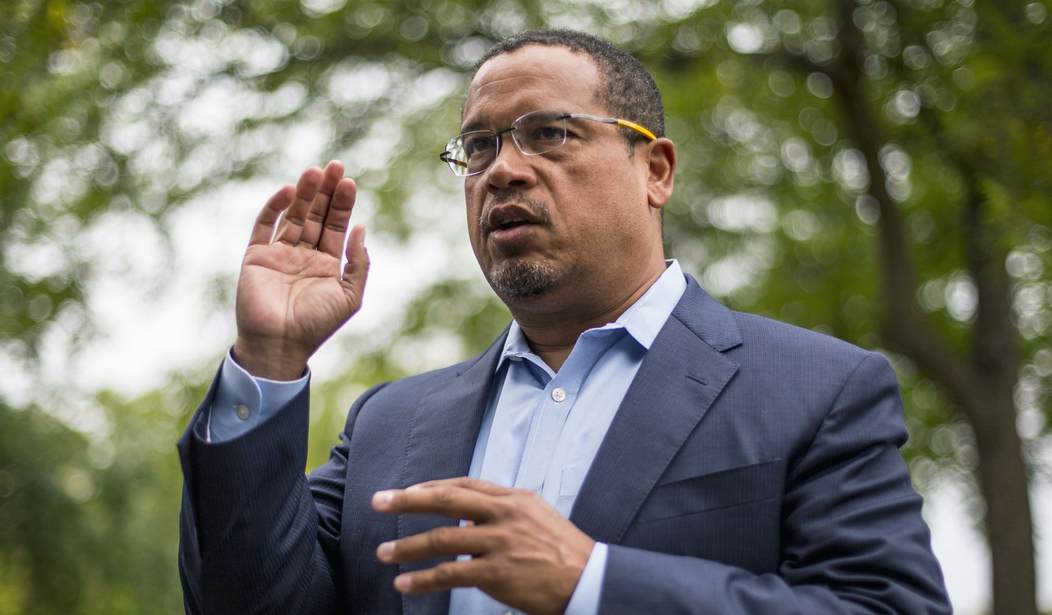After a three-judge panel on the Eighth Circuit Court of Appeals unanimously struck down Minnesota's ban on concealed carry for adults younger than 21, anti-gun Attorney General Keith Ellison had a decision to make. He could drop his appeal entirely, which would mean that Minnesota (and presumably the other states under the Eighth Circuit's jurisdiction) would have to start accepting carry applications from young adults, but would avoid the potential for the Supreme Court to uphold the appellate court's decision and apply its ruling nationwide. He could appeal directly to the Supreme Court, hoping that five justices on the Court are willing to say that the Second Amendment only applies to adults 21 and older. Or he could request an en banc review of the panel's decision by the entirety of the Eighth Circuit, which would at least delay Supreme Court review of the decision for another year or so, by which time the makeup of the Court may have changed to be more supportive of upholding gun control measures.
On Tuesday, Ellison decided to go with the third option, though there's no guarantee that the Eighth Circuit will grant his request.
The Eighth Circuit will decide whether to grant to deny the petition for rehearing within 2-3 weeks typically.
— MN Gun Owners Caucus (@mnguncaucus) July 30, 2024
If denied, then the mandate (ruling) in this case will take effect 7 days after the petition is denied.
If granted, new arguments will be scheduled and the mandate…
Both the district court judge and the three-judge appellate panel have concluded that Minnesota's law violates the Second Amendment rights of young adults, so unless Ellison has a compelling argument in favor of a do-over the en banc request isn't likely to be granted. And why does the AG believe an en banc review is necessary?
In his petition, Ellison raises a couple of points, neither of which are particularly strong. First, Ellison claims that the Eighth Circuit decision in Worth v. Jacobson is inconsistent with Eighth Circuit precedent as well as the Supreme Court's decision in Rahimi.
Rahimi’s clarification is critical here and requires rehearing and reversal. Like the Fifth Circuit, the district court in this case misunderstood what Bruen demanded.The district court performed a hypercritical analysis of each historical analogue offered by Minnesota, finding each wanting. But, like the Fifth Circuit in Rahimi, the district court did not understand that it could consider all the evidence cumulatively proffered by Minnesota and evaluate whether a consistent principle of regulation supported the Challenged Statute.
Rahimi is going to be a gift that keeps on giving for gun control activists, but I don't think it's going to be much help to Ellison here. No matter how many 18th and 19th century statutes Ellison offered as evidence, none of them bolstered the argument at the heart of his defense of the carry ban: that 18, 19, and 20-year-olds aren't a part of the "political community" in 2024, and therefore have no Second Amendment rights at all.
Even in his en banc petition Ellison waffles between that position and the idea that Minnesota's carry ban for young adults is only a "temporary restriction on firearm access" that doesn't truly violate their Second Amendment rights, since they're allowed to possess firearms in the home.
As a result, Ellison's petition to the Court is a half-baked mess of legal arguments, including the AG's assertion that adults younger than 21 should be treated as a dangerous class of individuals who can all be prohibited from keeping or bearing arms.
The panel’s approach to dangerousness also conflicts with Rahimi. Minnesota presented robust historical evidence—from the founding era and beyond—that legislatures have long denied firearms to categories of people who pose (or are perceived to pose, rightly or wrongly) special dangers. In the language of Rahimi, this historical tradition reveals a principle: that a legislature may disarm a group of people who pose special dangers of misusing firearms, such as minors or the mentally ill, for public safety.
Except that as Ellison argued in an earlier portion of the petition request, the state of Minnesota does not deny firearms to under-21s. They can purchase and possess long guns starting at age 18, and they can possess (but not purchase or carry) handguns. In fact, under state law 14 and 15-year-olds can possess firearms without an adult being present, so long as they have a firearms safety certificate.
Ellison's weak arguments aren't likely to win over the Eighth Circuit, and the appellate court may very well deny his en banc request in the next few weeks. It's pretty clear that Ellison is desperate to avoid Supreme Court review of the Eighth Circuit's decision, but playing keepaway from SCOTUS is a short-term solution at best when it comes to keeping Minnesota's carry ban for young adults intact.







